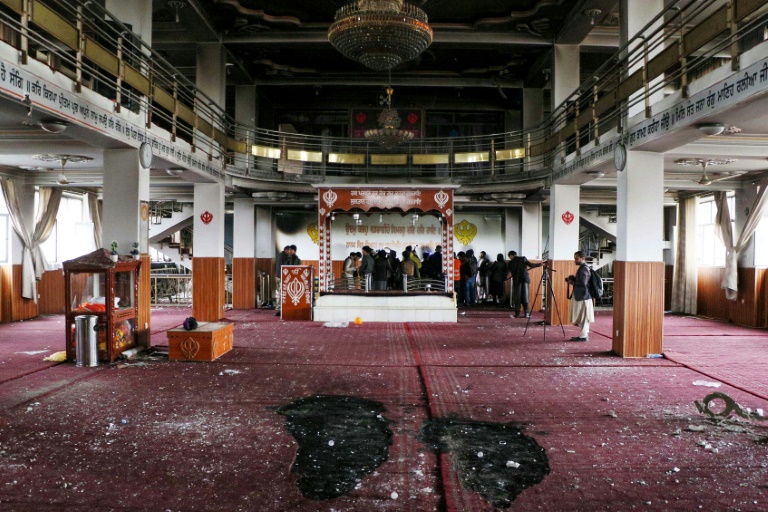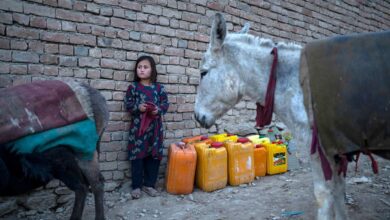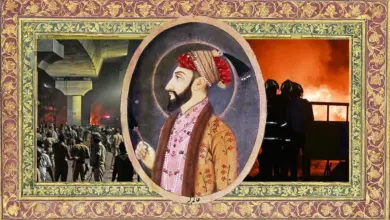
At least 25 people were killed Wednesday in an attack on a Sikh-Hindu temple in Afghanistan’s capital where worshippers were offering morning prayers, the latest brutal assault claimed by the Islamic State group.
The incident, highlighting the country’s ongoing violence, came several hours before Afghanistan’s National Security Council announced that the Taliban and government officials would hold a historic meeting face-to-face over a prisoner exchange.
Along with a raging insurgency, impoverished Afghanistan is reeling from a massive cut in US aid while it struggles with political deadlock and rising coronavirus cases.
The Taliban denied any involvement in the latest attack, for which the Islamic State (IS) group claimed responsibility, according to the SITE intelligence group.
Witness Raju Singh Sonny told AFP a man in a police uniform burst into the temple in central Kabul, shot a guard and started attacking worshippers in the main hall.
“Several other attackers also entered the building and they were going from room to room shooting people,” Sonny said.
Only a few thousand Sikhs and Hindus are estimated to reside in what is an overwhelmingly Muslim nation.
There were conflicting accounts about how many gunmen were involved, with security sources giving differing numbers, between one and four.
At least one attacker was subsequently killed by security forces in an hours-long clearing operation.
Anarkali Kaur Honaryar, a Sikh member of the Afghan parliament, told AFP about 150 people had been inside the temple, where several families also live and worshippers gather for morning prayers.
“Some people inside the temple are hiding and their phones are off,” Honaryar said while the attack was ongoing.
Interior ministry spokesman Tariq Arian said 25 civilians had been killed and eight others wounded, while 80 people had been rescued. Graphic images posted online showed several bodies as well as terrified people who appeared to be Sikhs running from the scene.
“Such cowardly attacks on the places of religious worship of the minority community, especially at this time of (the coronavirus) pandemic, is reflective of the diabolical mindset of the perpetrators and their backers,” the Indian foreign ministry said in a statement.
Sikhism and Hinduism are rooted in India.
Afghan leaders’ ‘failure’
IS has a history of targeting Afghan Sikhs and Hindus.
In recent months, the jihadist group has suffered mounting setbacks after being hunted by US and Afghan forces as well as Taliban offensives targeting their fighters, but it still retains the ability to launch major assaults on urban centres.
To add to Afghanistan’s woes, Washington slashed the amount of aid to the country this week after President Ashraf Ghani and his rival Abdullah Abdullah, who has also proclaimed himself president, failed to resolve their standoff.
Following a visit to Kabul, US Secretary of State Mike Pompeo said the US would immediately cut $1 billion and was prepared to pull another $1 billion in 2021.
The US and the Taliban signed a deal last month that was supposed to pave the way for talks between the Afghan leadership and the insurgents, but with Kabul unable to agree who is in government, the talks stalled.
The issue of the prisoners has been a major sticking point in the weeks since the signing.
But on Wednesday Afghanistan’s National Security Council said the Taliban and Ghani’s government would meet to discuss an initial release of 100 insurgent prisoners by March 31.
It is believed that it will be the first time ever that the Islamist extremist Taliban and Ghani’s government have met in an official capacity.
“To carry out these further discussions, a Taliban team will meet with the government face-to-face in Afghanistan in the coming days,” the NSC said.
Zalmay Khalilzad, the US negotiator who brokered the US-Taliban deal, confirmed on Twitter that “prisoner releases by both sides will start March 31.”
“This is a positive development,” he said.
The United States, hoping to pull its thousands of remaining troops out of Afghanistan to end 18 years of involvement, has said the coronavirus pandemic makes prisoner releases urgent.
In Washington on Wednesday, Pompeo called the temple attack “horrific” and reiterated his frustration at the failure to bridge the divide between Ghani and Abdullah.
But he said both — plus Taliban negotiator Mullah Baradar — were committed to a peaceful solution to end Afghanistan’s years of war.
Pompeo said it’s time for the political process to begin “with all the Afghans coming together around the table.”
He added: “I’m still optimistic that we can get there.”
Reporting by AFP
Image: Security personnel and journalists inspect the Sikh-Hindu temple in Kabul, Afghanistan after a deadly attack highlighting the country’s ongoing security crisis (AFP/STR)




